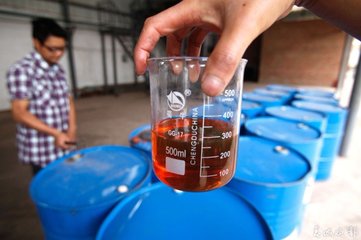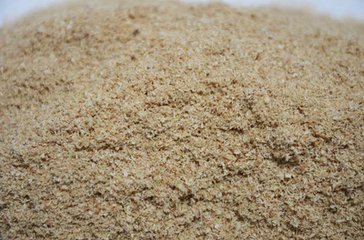Introduction Biodiesel that leaves the production plant in good condition can become unacceptable during distribution without proper care and attention. Biodiesel can degrade due to oxidation, contact with water, and/or microbial activity. In general, biodiesel will degrade more quickly than petro-diesel. In one sense, this is a good thing: a biodiesel spill will biodegrade quickly … Read More
Biodiesel Fuel
Safety in Small-Scale Biodiesel Production
Introduction Although the biodiesel manufacturing process is fairly straightforward, there are several aspects of biodiesel production that need careful attention to detail for a productive, safe, and environmentally sound practice. First, some chemicals used could pose serious risks to the operator or to the environment, unless the proper precautions are taken for storage, process safety, … Read More
Brief Introduction and Basic Features of Biodiesel
Biodiesel is extracted from plants oil and animal fat, it is commonly used for tractor, truck, ship etc. It refers to oil crops such as soybean, rapeseed, cotton and palm etc., wild oil plants and engineering microalgae and other aquatic plant oils, animal fats, food waste oils etc. as raw material oil, a regenerative diesel … Read More
Feasibility of AUS$50 million sawmill residue to renewable diesel facility investigated
The Australian Renewable Energy Agency (ARENA) has announced up to AUD$500,000 (€311,719) in funding will be awarded to Boral Timber to investigate the feasibility of building a biorefinery capable of producing biodiesel from sawmill residues. If the facility at Boral Timber’s Hardwood Sawmill at Herons Creek near Port Macquarie, New South Wales, goes ahead, it will be … Read More
Used cooking oil transformed into biodiesel goes into gas station
Recycling and disposal of waste oils from kitchen and biodiesel selling have been a problem for the city.Shanghai is trying to get B5 biodiesel into more than 200 gas stations this year.By then, more than 30,000 tons of waste cooking oil from Shanghai will be consumed by social vehicles every year.At the same time, due to some biodiesel characteristics … Read More
Benefits Of Biodiesel Instruction
Environmental Benefits In 2000, biodiesel became the only alternative fuel in the country to have successfully completed the EPA-required Tier I and Tier II health effects testing under the Clean Air Act. These independent tests conclusively demonstrated biodiesel’ s significant reduction of virtually all regulated emissions, and showed biodiesel does not pose a threat to … Read More
Washing Biodiesel
After biodiessel is produced, there are several impurities present in the raw fuel that must be removed before it can be used safely. Biodiesel washing can be achieved by several methods, such as water washing or dry washing. Washing biodiesel with water is time consuming. After water wash, the biodiesel fuel still needs to be … Read More
Raw Material For Biodiesel
1. Vegetable oils Castor oil, lower cost than many candidates. Kinematic viscosity may be an issue. Coconut oil (copra oil), promising for local use in places that produce coconuts. Colza oil, from Brassica rapa, var. oleifera (turnip) is closely related to rapeseed (or canola) oil. It is a major source of biodiesel in Germany. Corn oil, appealing because of the abundance of maize as a … Read More
What Are The Biodiesel Applications?
Biodiesel can be used in pure form (B100) or may be blended with petroleum diesel at any concentration in most injection pump diesel engines. New extreme high-pressure (29,000 psi) common rail engines have strict factory limits of B5 or B20, depending on manufacturer. Biodiesel has different solvent properties than petrodiesel, and will degrade natural rubber … Read More
What Is Biodiesel Fuel?
Biodiesel refers to a vegetable oil – or animal fat-based diesel fuel consisting of long-chain alkyl (methyl, ethyl, or propyl) esters. Biodiesel is typically made by chemically reacting lipids (e.g., vegetable oil, soybean oil, animal fat with an alcohol producing fatty acid esters. Biodiesel is meant to be used in standard diesel engines and is … Read More

